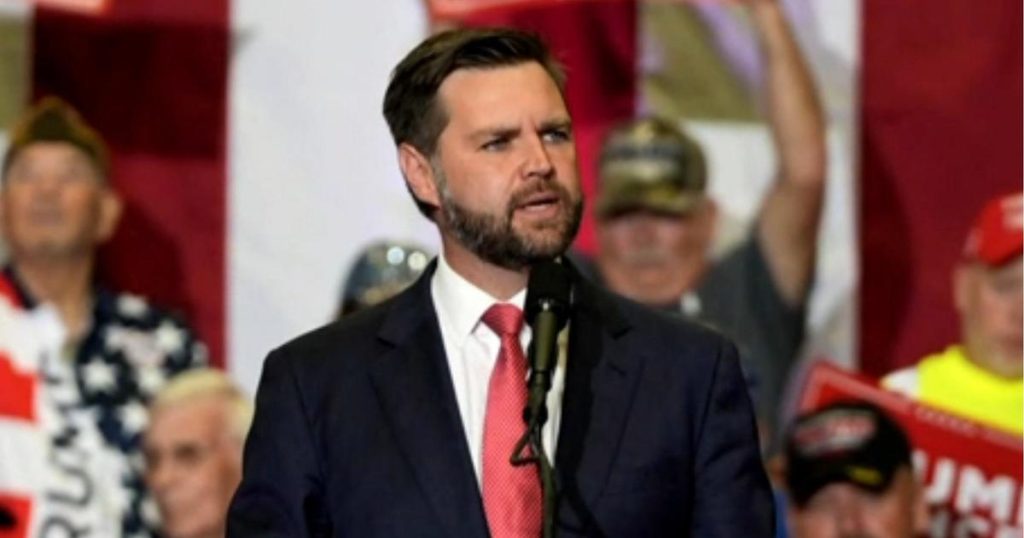JD Vance, the Republican vice presidential nominee, recently came under fire for comments he made criticizing the prevalence of childless individuals in politics. He faced intense criticism for his remarks, but in a recent interview, he attempted to defend his stance on the issue. Vance’s comments have sparked a heated debate about whether having children should be a prerequisite for holding political office or having a say in public policy.
During the interview, Vance stated that he believes people who have children are more likely to have a long-term perspective and be invested in the future. He argued that individuals who are childless may not consider the consequences of their decisions on future generations, leading to short-sighted policies. Vance’s comments have been met with both support and criticism, with some agreeing with his perspective and others calling his views narrow-minded and exclusionary.
Critics of Vance’s comments have pointed out that there are many reasons why someone may be childless, including medical issues, personal choice, or economic circumstances. They argue that being childless does not diminish a person’s ability to contribute to society or have valid opinions on political issues. Some have also accused Vance of perpetuating stereotypes and stigmatizing individuals who do not have children. The debate has highlighted the complexities of the issue and the need for a more nuanced understanding of diversity in politics.
In response to the backlash, Vance has stood by his comments and reiterated his belief that having children should be a factor in determining a person’s qualifications for political office. He argued that parents have a unique perspective on issues such as education, healthcare, and family policy, and that their voices should be heard in the public discourse. While some have applauded Vance for his stance, others have criticized him for overlooking the contributions of childless individuals and failing to recognize the diverse experiences and perspectives within society.
The controversy surrounding Vance’s comments underscores the ongoing debate about family, career, and public life in modern society. The issue of whether having children should be a prerequisite for political participation has sparked conversations about societal expectations, gender roles, and the evolving definition of family. As the debate continues, it is important to consider the diverse perspectives and experiences of individuals who may not fit traditional norms of parenthood. Ultimately, the value of each person’s voice in shaping public policy should be based on their ideas and contributions, rather than their personal choices or circumstances.
In conclusion, JD Vance’s defense of his comments on childless individuals in politics has sparked a heated debate about the role of parenthood in public life. While some support his stance on the issue, others have criticized him for promoting exclusionary and outdated views. The controversy highlights the complexities of the relationship between family, career, and public service, and the need for a more inclusive and diverse understanding of political participation. As the conversation continues, it is essential to consider the diverse perspectives and experiences of all individuals, regardless of their family status, in shaping public policy and societal norms.


